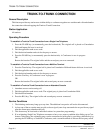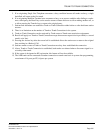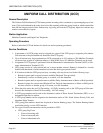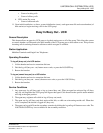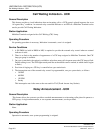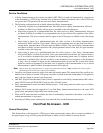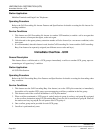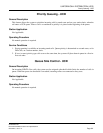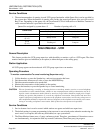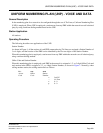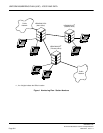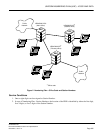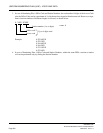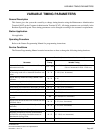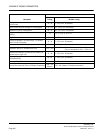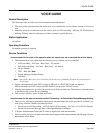
UNIFORM CALL DISTRIBUTION (UCD)
Silent Monitor - UCD
NEAX2000 IVS
2
Business/Hotel/Data Features and Specifications
Page 322
NDA-24271, Issue 1.0
Service Conditions
1. The maximum number of queuing in each UCD group (hereinafter called Queue Size) can be specified by
the system data. When the number of queuing calls reaches the preassigned queue size, new calls receive
Busy Tone. Depending on the queue size, the Overflowed UCD call indication on a Multiline Terminal or
on the external indicator is provided as shown below:
Queue Size assigned by system data = S Number of queuing calls = N
Silent Monitor - UCD
General Description
This feature provides the UCD group supervisor with the ability to monitor a call to a UCD agent. The silent
monitor function gives no indication (as an option) to either the agent or the calling party.
Station Application
All UCD group agents can be monitored. All UCD group supervisors can monitor.
Operating Procedure
To monitor a conversation/To cancel monitoring (Supervisor only)
1. Lift the handset, or press the Speaker key, and receive extension dial tone.
2. Dial the monitor feature access code, or press the MONITOR key.
3. Dial the extension number to be monitored.
4. Monitor the conversation via the handset or the speaker.
5. Restore the handset, or press the Speaker key to cancel monitoring.
CAUTION:
The use of monitoring, recording, or listening devices to eavesdrop, monitor, retrieve, or record telephone
conversations or other sound activities, whether or not contemporaneous with its transmission, may be il-
legal in certain circumstances under federal or state laws. Legal advice should be sought prior to imple-
menting any practice that monitors or records any telephone conversation. Some federal and state laws
require some form of notification to all parties to the telephone conversation, such as using a beep tone or
other notification methods or require the consent of all parties to the telephone conversation, prior to mon-
itoring or recording a telephone conversation. Some of these laws incorporate strict penalties.
Service Conditions
1. Service feature class is used to control which stations are agents and which are supervisors.
2. The default setting in system programming is that one tone is sent to both parties when the monitoring fea-
ture is used. As an option, this tone may be disabled, on a per system basis.
3. The Silent Monitor feature uses a 3-party conference circuit. Therefore, a maximum of 16 monitors can oc-
cur simultaneously, in conjunction with any normal Conference (Three/Four party) in progress.
CONDITIONS
LAMP INDICATION
Multiline Terminal External Indicator
S = 1 Steady on red Lamp on
1
≤
N < S
(S
≠
1)
Steady on red Lamp off
S
≤
N
(S
≠
1)
Flashing red Lamp on



